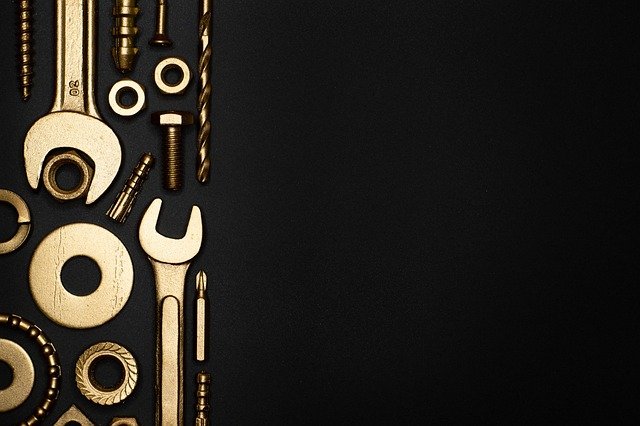Garage Door Repair: Common Issues, Costs, and DIY Tips
Garage repair services can address a variety of issues, from broken door springs and openers to structural damage. Regular maintenance helps extend the life of your garage system. Read and understand common problems, repair costs, and safety considerations.

What are the most common garage door problems?
Garage doors can face various issues, ranging from minor inconveniences to major safety concerns. Some of the most frequent problems include:
-
Broken springs: Torsion or extension springs help counterbalance the door’s weight, making it easier to open and close. When these springs wear out or break, the door becomes difficult or impossible to operate.
-
Malfunctioning opener: Issues with the garage door opener can prevent the door from opening or closing properly. This may be due to worn gears, a faulty motor, or problems with the remote control.
-
Misaligned tracks: If the tracks that guide the door become bent or misaligned, the door may not open or close smoothly, potentially causing damage to other components.
-
Broken cables: Cables work in tandem with the springs to lift and lower the door. When they snap or fray, the door can become unbalanced or inoperable.
-
Worn rollers: As rollers deteriorate, they can cause the door to operate noisily or unevenly, potentially leading to more serious issues if left unaddressed.
How much does garage door repair typically cost?
The cost of garage door repair can vary widely depending on the specific issue and the extent of the damage. Here’s a general overview of common repair costs:
| Repair Type | Average Cost Range |
|---|---|
| Spring replacement | $150 - $350 |
| Opener repair/replacement | $150 - $500 |
| Cable replacement | $100 - $200 |
| Track repair/replacement | $125 - $300 |
| Roller replacement | $10 - $15 per roller |
| Panel replacement | $250 - $800 per panel |
Prices, rates, or cost estimates mentioned in this article are based on the latest available information but may change over time. Independent research is advised before making financial decisions.
It’s important to note that these are average costs, and actual prices may vary depending on your location, the specific brand or model of your garage door, and the complexity of the repair. Additionally, if multiple issues need to be addressed, the overall cost will likely be higher.
What garage repair information should homeowners know?
Homeowners should be aware of several key points regarding garage door repair and maintenance:
-
Safety first: Garage doors are heavy and operate under high tension. Always prioritize safety and consider calling a professional for complex repairs.
-
Regular maintenance: Performing routine checks and maintenance can prevent many common issues and extend the life of your garage door system.
-
Lubrication: Regularly lubricating moving parts like hinges, rollers, and springs can reduce wear and tear and keep the door operating smoothly.
-
Balance check: Test your door’s balance by disconnecting the opener and manually lifting the door halfway. If it doesn’t stay in place, the springs may need adjustment or replacement.
-
Weather stripping: Inspect and replace weather stripping as needed to maintain energy efficiency and prevent drafts.
-
Professional inspections: Consider having a professional inspect your garage door annually to catch potential issues early and ensure optimal performance.
Can I repair my garage door myself?
While some minor garage door repairs and maintenance tasks can be performed by homeowners, it’s essential to know your limits and prioritize safety. Here are some DIY-friendly tasks:
-
Visual inspection: Regularly check for loose hardware, worn parts, or signs of damage.
-
Lubrication: Apply silicone-based lubricant to moving parts as needed.
-
Weather stripping replacement: This can usually be done with basic tools and materials from a hardware store.
-
Remote battery replacement: Changing batteries in garage door remotes is a simple task most homeowners can handle.
-
Sensor cleaning: Wipe down the safety sensors to ensure proper function.
However, for more complex repairs involving springs, cables, or major structural components, it’s strongly recommended to hire a professional. These repairs can be dangerous if not performed correctly and may void your warranty if attempted by an unqualified individual.
When should I call a professional for garage repair?
While DIY maintenance can address some issues, there are situations where professional help is necessary:
-
Spring replacement: Torsion and extension springs are under high tension and can cause serious injury if mishandled.
-
Opener malfunction: If your opener isn’t responding or is behaving erratically, a professional can diagnose and repair the issue safely.
-
Structural damage: Any damage to the door panels, frame, or tracks should be assessed by an expert to ensure proper repair and prevent further issues.
-
Cable replacement: Like springs, cables are under high tension and require specialized tools and knowledge to replace safely.
-
Persistent or unusual noises: If your door is making strange sounds that don’t resolve with lubrication, it’s time to call a pro.
-
Safety concerns: If you’re ever unsure about the safety or functionality of your garage door, it’s best to consult with a professional.
By understanding common garage door issues, repair costs, and when to seek professional help, homeowners can maintain their garage doors effectively and ensure long-lasting, safe operation. Regular maintenance and prompt attention to minor problems can prevent more significant issues down the line, saving both time and money in the long run.




